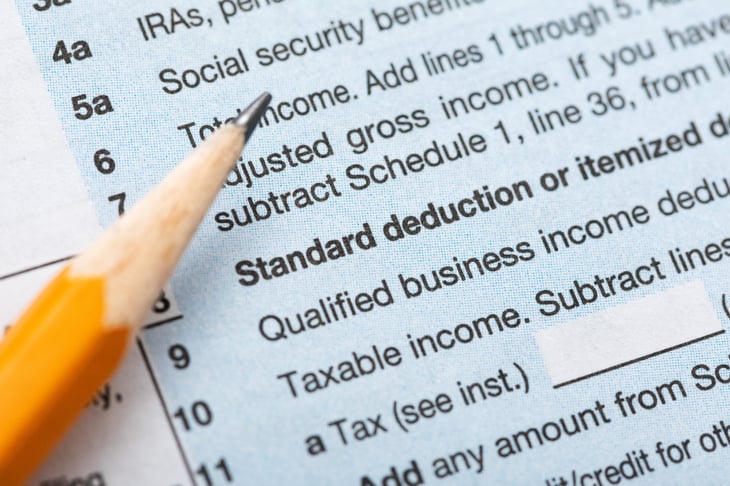
A new bill in Congress would temporarily increase the standard deduction by $2,000 to $4,000 for many taxpayers. That would mean a lower taxable income and likely also a lower tax bill for those affected.
The Tax Cuts for Working Families Act (HR 3936) was introduced last week by Rep. Jason Smith (R-Mo.) in an effort to help ease the sting of inflation. It was passed this week by the House of Representatives’ Committee on Ways and Means, paving the way for the full House to vote on it.
Here’s a look at everything the legislation would do, who would benefit from it, what lies ahead for it and what you can do about it.
Renaming the standard deduction

The Tax Cuts for Working Families Act would change the federal standard deduction in two ways. This tax break lowers your federally taxable income, which typically also lowers your federal income taxes themselves. (You can learn more about it in “Here’s Your New Standard Deduction and Tax Rate for 2023.”)
The first way in which the new bill would change the standard deduction is to rename it the “guaranteed deduction.” This is merely a technical change. It’s also a misnomer: This tax deduction, by whatever name Congress might call it, is not guaranteed for everyone.
The vast majority of Americans — 88% of returns as of 2019 — do claim the standard deduction. The amount of the deduction was roughly doubled by the Tax Cuts and Jobs Act of 2017. As a result, more taxpayers are better off claiming the standard deduction than itemizing their tax deductions.
Still, there are a few situations in which the IRS doesn’t allow taxpayers to claim the standard deduction. (One example is a married person whose spouse both files a separate tax return and itemizes, and the IRS has a few more examples.) HR 3936 does nothing to change this.
Increasing the standard deduction

The heart of the Tax Cuts for Working Families Act is an increase in the standard deduction/guaranteed deduction for the 2024 and 2025 tax years — the ones for which tax returns are due in 2025 and 2026. The bill refers to this increase as a “bonus guaranteed deduction.”
For 2024, the increase would be:
- $4,000 per tax return for people whose tax-filing status is married filing jointly or surviving spouse
- $3,000 for people whose filing status is head of household
- $2,000 for people whose filing status is single or married filing separately
For 2025, these amounts would be adjusted for inflation.
Wealthier taxpayers would get a smaller “bonus” deduction or none at all, however. HR 3936 phases it out for those whose modified adjusted gross income, or MAGI, exceeds these thresholds:
- $400,000 for married filing jointly or surviving spouse
- $300,000 for head of household
- $200,000 for single or married filing separately
In other words, if your MAGI in 2024 or 2025 is greater than the applicable threshold, your “bonus” deduction will be worth less than the amount listed above, if anything. The exact amount of your bonus deduction would depend upon the exact amount by which your MAGI exceeds your threshold.
What happens next?

Most bills never make it out of committee. So the Tax Cuts for Working Families Act technically has better odds of advancement than most legislation. But in reality, it still has a long way to go before it could become law. The full House must pass it, the Senate must pass it, and then the president must sign it.
What’s more, the House Committee on Ways and Means passed the bill along party lines: Every Republican committee member present for the vote voted for the legislation, and every Democratic committee member present voted against it. This doesn’t bode well for the bill’s odds of passage by the Senate, where Democrats currently have the majority.
It’s possible, however, that HR 3936 could be worked into another piece of legislation that has a better chance of becoming law.
As tax CPA Ed Zollars wrote for Kaplan Financial Education this week, it is part of a trio of bills that “are anticipated to serve as the initial framework for negotiations in crafting a tax bill or bills that could potentially be enacted in 2023.”
What can you do?

To let your representatives know how you feel about HR 3936, contact them.
To learn more about the bill, check it out at Congress.gov.





Add a Comment
Our Policy: We welcome relevant and respectful comments in order to foster healthy and informative discussions. All other comments may be removed. Comments with links are automatically held for moderation.